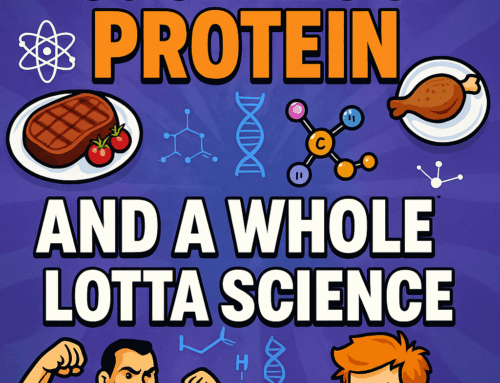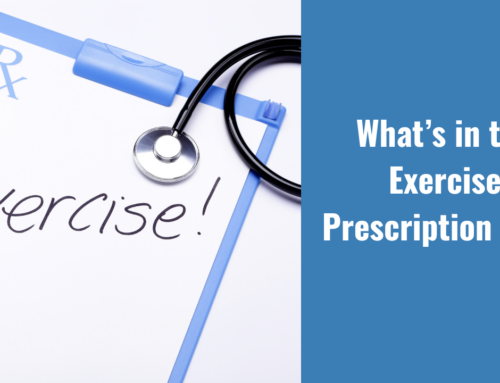Here is one of the big ones I hear about CBD (cannabidiol) and recovery.
“Yo bro, don’t you know that CBD helps increase growth hormone and lowers cortisol?”
Something that bumps up GH and lowers cortisol has the potential for helping recovery from lifting and maybe fat-loss too.
The claims for the magical power of CBD are getting pretty nuts. Here is one in relation to recovery:
“ CBD has the ability to naturally improve moods, calm anxiety, and regulate stress. It actually works to counteract cortisol from being released.” – site withheld on purpose
Counteract cortisol?
Hold the phone, Tex . . . That is a big claim. Let’s set aside the issue and ask if that is even a good thing (hint: it’s not).
What does the actual data say?
Will the nerds win this one? or the bros?
Off to pubmed we go!
CBD on GH and Cortisol
In short, there is very very little actual human data on the effect of CBD on GH and cortisol.
In fact, I could only find ONE published human study on it (1).
In the study, 11 healthy volunteers were given a oral dose of 300 mg CBD (7 subjects) or 600 mg CBD (4 subjects) (1). The study was conducted in a double-blind, placebo-controlled way to keep all research nerds happy.

They found that growth hormone (GH) and prolactin levels were unchanged.
Uh oh.
Nerds 1, Bros 0.
CBD does NOT appear to affect GH levels even at a monster dose.
In the same vein, the researchers showed that the normal decrease of cortisol levels in the morning (it peaks in the AM and then declines during the day) was actually inhibited by CBD treatment.
You read that correctly – CBD actually prevented a drop in cortisol.
So much for it pushing cortisol levels down – it did the direct opposite.
Final Score: Nerd 2, Bros 0
In all fairness, this was a very small study and the data is not quite as “clean” as reported above since it did vary quite a bit over the entire time course. Plus, we don’t know if these small changes in cortisol –even though statistically significant – mean anything physiologically. Very acute changes in other hormones overall do very little for body changes. For example, acute testosterone increase from exercise does happen, but does not lead to beneficial changes to hypertrophy (2-8)
Summary:
In the end, there is only 1 study in humans right now related to CBD’s potential effects on GH and cortisol (1). Those results showed no changes in GH and perhaps an increase in cortisol.
I feel that CBD does have some true benefits, but beneficial recovery changes in GH and cortisol is not one of them so far.
Looks like the research nerds won this battle.
Dr Mike
PS -Right now the only CBD/ hemp oil product I personally use is from Charlotte’s Web available at Driven Nutrition.
I’ve been fortunate enough to talk with them a ton, visit their facilities and do my homework as best I can to see they are doing it in a legit fashion. Full disclosure, I do make some clams if you opt to purchase their CBD products form my link. I will even help you out by using the coupon code drmike to save you15%.
>> Charlote’s Web CBD Hemp Oil <<
use the code drmike to save 15%
References
- Zuardi AW, Guimaraes FS, Moreira AC. Effect of cannabidiol on plasma prolactin, growth hormone and cortisol in human volunteers. Brazilian journal of medical and biological research = Revista brasileira de pesquisas medicas e biologicas. 1993;26(2):213-7.
- West DW, Phillips SM. Anabolic processes in human skeletal muscle: restoring the identities of growth hormone and testosterone. The Physician and sportsmedicine. 2010;38(3):97-104.
- West DW, Burd NA, Tang JE, Moore DR, Staples AW, Holwerda AM, et al. Elevations in ostensibly anabolic hormones with resistance exercise enhance neither training-induced muscle hypertrophy nor strength of the elbow flexors. J Appl Physiol (1985). 2010;108(1):60-7.
- Burd NA, West DW, Churchward-Venne TA, Mitchell CJ. Growing collagen, not muscle, with weightlifting and ‘growth’ hormone. The Journal of physiology. 2010;588(Pt 3):395-6.
- West DW, Burd NA, Staples AW, Phillips SM. Human exercise-mediated skeletal muscle hypertrophy is an intrinsic process. The international journal of biochemistry & cell biology. 2010;42(9):1371-5.
- West DW, Cotie LM, Mitchell CJ, Churchward-Venne TA, MacDonald MJ, Phillips SM. Resistance exercise order does not determine postexercise delivery of testosterone, growth hormone, and IGF-1 to skeletal muscle. Applied physiology, nutrition, and metabolism = Physiologie appliquee, nutrition et metabolisme. 2013;38(2):220-6.
- Burd NA, Holwerda AM, Selby KC, West DW, Staples AW, Cain NE, et al. Resistance exercise volume affects myofibrillar protein synthesis and anabolic signalling molecule phosphorylation in young men. The Journal of physiology. 2010;588(Pt 16):3119-30.
- West DW, Kujbida GW, Moore DR, Atherton P, Burd NA, Padzik JP, et al. Resistance exercise-induced increases in putative anabolic hormones do not enhance muscle protein synthesis or intracellular signalling in young men. The Journal of physiology. 2009;587(Pt 21):5239-47.




Leave A Comment